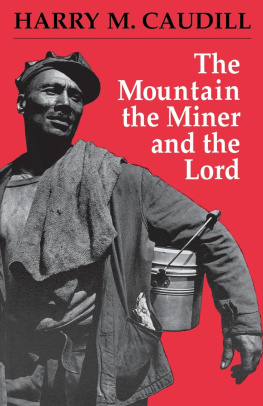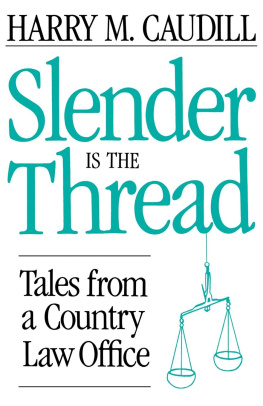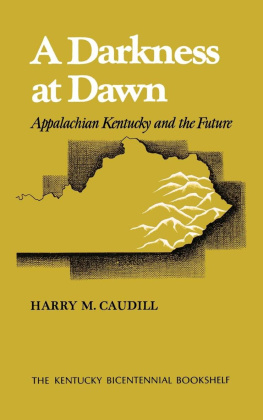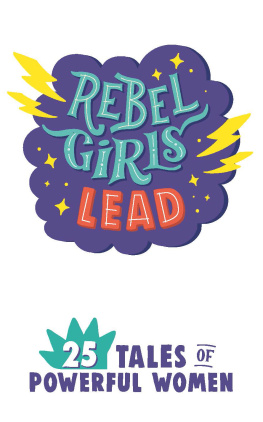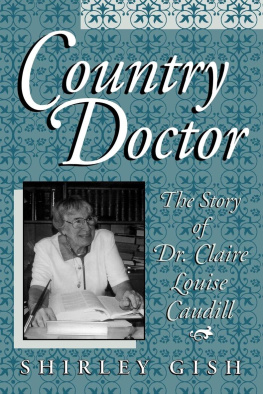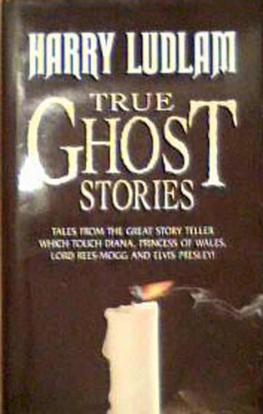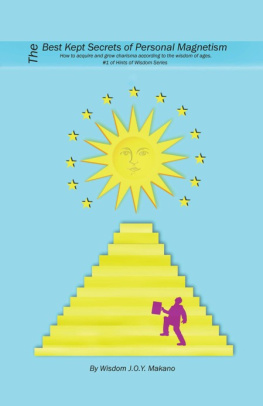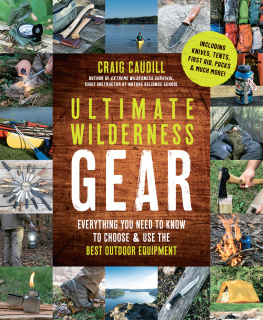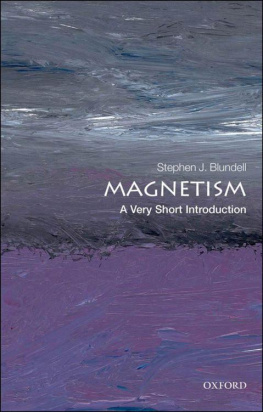Harry M. Caudill - The Mountain, the Miner, and the Lord and Other Tales from a Country Law Office
Here you can read online Harry M. Caudill - The Mountain, the Miner, and the Lord and Other Tales from a Country Law Office full text of the book (entire story) in english for free. Download pdf and epub, get meaning, cover and reviews about this ebook. year: 2014, publisher: The University Press of Kentucky, genre: Home and family. Description of the work, (preface) as well as reviews are available. Best literature library LitArk.com created for fans of good reading and offers a wide selection of genres:
Romance novel
Science fiction
Adventure
Detective
Science
History
Home and family
Prose
Art
Politics
Computer
Non-fiction
Religion
Business
Children
Humor
Choose a favorite category and find really read worthwhile books. Enjoy immersion in the world of imagination, feel the emotions of the characters or learn something new for yourself, make an fascinating discovery.
- Book:The Mountain, the Miner, and the Lord and Other Tales from a Country Law Office
- Author:
- Publisher:The University Press of Kentucky
- Genre:
- Year:2014
- Rating:5 / 5
- Favourites:Add to favourites
- Your mark:
- 100
- 1
- 2
- 3
- 4
- 5
The Mountain, the Miner, and the Lord and Other Tales from a Country Law Office: summary, description and annotation
We offer to read an annotation, description, summary or preface (depends on what the author of the book "The Mountain, the Miner, and the Lord and Other Tales from a Country Law Office" wrote himself). If you haven't found the necessary information about the book — write in the comments, we will try to find it.
This book of stories celebrates people who have a magnetism, a tenacity, a personal vision, an independence, and a self-sufficiency that elude most of us today.
The Mountain, the Miner, and the Lord and Other Tales from a Country Law Office — read online for free the complete book (whole text) full work
Below is the text of the book, divided by pages. System saving the place of the last page read, allows you to conveniently read the book "The Mountain, the Miner, and the Lord and Other Tales from a Country Law Office" online for free, without having to search again every time where you left off. Put a bookmark, and you can go to the page where you finished reading at any time.
Font size:
Interval:
Bookmark:

THE MOUNTAIN THE MINER AND THE LORD
Harry M. Caudill
THE MOUNTAIN THE MINER AND THE LORD
and Other Tales from a Country Law Office
THE UNIVERSITY PRESS OF KENTUCKY
Publication of this volume was made possible in part by a grant from the National Endowment for the Humanities.
Copyright 1980 by The University Press of Kentucky
Scholarly publisher for the Commonwealth,
serving Bellarmine University, Berea College, Centre College of Kentucky, Eastern Kentucky University, The Filson Historical Society, Georgetown College, Kentucky Historical Society, Kentucky State University, Morehead State University, Murray State University, Northern Kentucky University, Transylvania University, University of Kentucky, University of Louisville, and Western Kentucky University.
All rights reserved.
Editorial and Sales Offices: The University Press of Kentucky 663 South Limestone Street, Lexington, Kentucky 40508-4008
06 05 04 03 5 4 3
Library of Congress Cataloging-in-Publication Data
Caudill, Harry M. 1922
The mountain, the miner, and the Lord, and other tales from a country law office.
CONTENTS: A visit to the White House.Little Thuggie.The mountain, the miner, and the Lord.[etc.]
1. Letcher Co., Ky.Social life and customsAddresses, essays, lectures.
2. Letcher Co., Ky.BiographyAddresses, essays, lectures.
3. KentuckySocial life and customsAddresses, essays, lectures.
4. KentuckyBiographyAddresses, essays, lectures. 5. Caudill, Harry M., 1922- Addresses, essays, lectures. I. Title.
F457.L48C38 976.9163 80-51012
ISBN 0-8131-1403-9 (cloth)
ISBN 0-8131-0195-6 (paperback)
This book is printed on acid-free recycled paper meeting the requirements of the American National Standard for Permanence in Paper for Printed Library Materials.

Manufactured in the United States of America.
| Member of the Association of American University Presses |
Preface
Lyndon Johnson loved to speak of the United States as the richest and most powerful country in the history of the world. It was obvious from the context of his speeches that he measured riches in money, in agricultural bounty and manufacturing capacitythe ability to turn out myriads of material things. In this respect America is rich, but this is a faulty standard for measuring the wealth and well-being of a nation.
I had the good fortune to be born in 1922 in Letcher County, Kentucky. This event, so important to me, occurred in an old-fashioned and altogether modest house in a tiny hollow called the Long Branch of the Kentucky River. The Kentucky hills were a fascinating place in which to grow to manhood.
As I grew up, the thin layer of topsoil on which six generations of farmers had depended for subsistence was wearing out and being washed down the rivers to the sea. Huge numbers of people were coming in from other states and from Europe to labor in the scores of coal mines that had opened since 1910. Thousands of native-born mountaineers were simultaneously shaking the dust of their hills from their shoes and heading north, west, and souththe beginning of mammoth out-migration that eventually carried more than a million of them to lives in strange new surroundings. Most local travel was still afoot or on horseback, but cars were becoming more common. Roads were abominable but the people had caught the highway fever, and construction was under way. Telephones were largely unknown outside the towns, and the suave voice of the radio announcer was just beginning to intrude into mountain households.
Homes were heated by fireplaces and stoves. Only the wealthy had furnaces and plumbing. Schools were mostly one-room affairs and teachers were paid about seventy-five dollars monthly for a seven- or eight-month term. College degrees were almost unknown. Discipline was strict and misconduct brought thrashings which parents usually duplicated at the end of the day.
The Bible was the source of nearly all wisdom, and even confirmed sinners said they believed every word of it. It was taught in the schools, and the day began with a prayer. No one supposed for a moment that any of this was unconstitutional. Patriotism was the second religion of the hill people. God and Country and My Country Right or Wrong were printed by childish hands on countless sheets of pulp tablet paper.
Society was largely patriarchal. Families clustered about the old people, with sons, daughters, sons-in-law, daughters-in-law, and grandchildren looking to them for advice in matters of morals, marriage, economics, and politics. The grandparents were a living cement that held the generations together and provided for the transmission of folk information. Along with the stories of people and things from other days, and the title to the shrinking bits of land, were transmitted immense amounts of folk knowledge. In the hills a young man grew up as a passable rough carpenter who could frame out a house or barn. He could take off a worn sole and repair his shoes on a last that might have been old when the rebels fired on Fort Sumter. He could plow, plant, and harvest a dozen varieties of garden vegetables and knew the season when each task should be done. He knew the trees and the low ground-plants of his native hills and could brew tonics and teas that lessened pain and supplied needed vitamins and minerals. He was an adequate smith, and might be able to draw iron and fashion it into tools, hinges, and even guns. He could slaughter hogs and cattle, preserve the meat, and tan the hides. He was a skilled hunter, knew the haunts and hiding places of birds and animals, and could emulate their calls with amazing fidelity. His fingers produced dulcimers and banjos, and brought forth tunes to accompany the ancient songs which his imagination embellished and enlarged. In the mines he could set roof props, drill blast-holes, charge them with explosives, set off the shots, and then clean up the cut. He might still remember how to boil niter from sandstone and mix it with hard maple charcoal and sulfur boiled from powder water to compound highly potent black powder.
In many of these tasks, his wife worked alongside him. She could also clip wool from the back of a sheep, clean it, comb it, card it, and dye it. The ability to spin it into thread and weave it into patterned cloth had not been wholly lost. She knew how to trim the fat from the guts of hogs and transform it into soap. She could preserve foods by drying, canning, and pickling, and brew remedies from a score of plants. Her granny woman often did a creditable job of delivering her babies.
Frugality was a perpetual and instinctive part of living. All in all, they were a profoundly knowledgeable people. They were also grossly ignorant. They doubted that the world was round and were familiar only with the theory that it was about six thousand years old, having been made with all its creatures in precisely six days. Most of them could read little or nothing, and not one house in a dozen subscribed to any reading matter. To their sorrow they knew nothing at all about cover-cropping and crop rotation. Superstitions were rampant. The notion that germs caused sickness was only slowly gaining acceptance, and sanitary standards were shockingly low by todays norms. But when all this is conceded they still knew a tremendous lot.
When they are compared to their descendants of the same age today it seems likely that a great shrinkage of overall information has occurred. Todays young can read appreciably better but most get their newsthe information by which they livefrom the inanities and pomposities of television. They have a smattering of general information that is impressive, but are shockingly weak on specifics. The skills of their forebears have been lost. If cast onto the land or into an industrial city they arrive without skills. They may laugh at the ignorance of their ancestors, but in a very real sense they are vastly more ignorant. They tend to be unemployable generalists who can earn no bread until a narrow and specific aptitude is acquired. Compare the knowledge of the hill farmer of 1927who perforce lived by the skills I have referred towith that of his grandson who spends his days bolting rear bumpers onto Ford cars, and the limitation of the latter is chilling.
Font size:
Interval:
Bookmark:
Similar books «The Mountain, the Miner, and the Lord and Other Tales from a Country Law Office»
Look at similar books to The Mountain, the Miner, and the Lord and Other Tales from a Country Law Office. We have selected literature similar in name and meaning in the hope of providing readers with more options to find new, interesting, not yet read works.
Discussion, reviews of the book The Mountain, the Miner, and the Lord and Other Tales from a Country Law Office and just readers' own opinions. Leave your comments, write what you think about the work, its meaning or the main characters. Specify what exactly you liked and what you didn't like, and why you think so.

